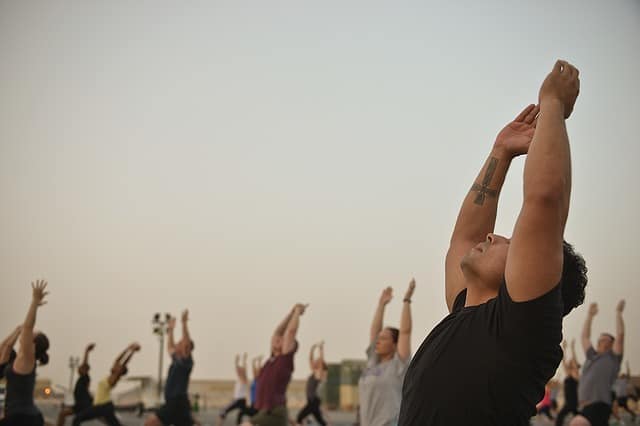A professor of Physiotherapy at Trinity College in Dublin reveals several misconceptions that many people have about training
Christmas arrives and with it the eaters, reunions, gifts and, of course, New Year’s resolutions. Surely keep in mind that 2020 – finally – is going to be the year to exercise, although your busy life may prevent you.
Just as there are many reasons why people do not practice any sport, there are also many misconceptions about exercise. Julie Broderick, Professor of Physiotherapy at Trinity College in Dublin, reveals nine misconceptions that many people have about exercise, picks up ‘Science Alert’.
1. “I’m fit, I don’t need to exercise”
Unfortunately, the health benefits of exercise will not last if you do not continue training. A significant reduction or abandonment can cause a strong loss of improvements for your body, such as cardiovascular capacity and endurance, according to a study by the Athletic Club of Bilbao. Constancy is the key. Maintaining high levels of physical activity throughout your life is associated with better results for your health.
2. “Moving all day does not benefit”
Standing and moving all day means that you follow a high level of physical activity and this improves your health. To optimize the benefits, increase your level of exercise enough to sweat a little (whenever possible), recommends the expert.
3. “Training only ten minutes does not work”
The good news is that recent guidelines transmitted by specialists have eliminated this belief. There is no minimum threshold for health benefits, therefore, you can perform active daily tasks for your body, such as loading shopping bags and employing yourself thoroughly with house cleaning.
Try to do, for example, between three and five short periods of activity (from half a minute to two minutes) that extend throughout the day such as climbing some flights of stairs with an intensity high enough to get tired.
4. “I have a disease, I must avoid it”
That’s not true. Being more active will benefit a number of pathologies such as cancer, heart disease and chronic obstructive pulmonary pathology.
You must be as active as your condition allows. Set yourself the goal of 150 minutes a week of moderate activity if possible. If you have a very complex pathology, ask a doctor for authorization before starting a new training and seek the advice of a physical therapist or other exercises professional.
5. “I am old to exercise”
The evidence shows that ageing alone is not a cause of problems important until you reach age 90. Strength, power and muscle mass can be increased, even at this advanced age.
The specialist recommends that you include aerobic exercise, balance training and muscle strengthening if you are 65 years of age or older.
6. “Exercise will make me lose weight”
Not necessarily. Combine caloric restriction with physical activity to lose weight and remember: you can’t forget to take a bad diet.
People who have fairly large weight loss goals (above 5% of body weight) and people trying to maintain a significant amount of weight (to have muscles) may need to do more than 300 minutes a week of activity moderate intensity to achieve your goal.
7. “Running once a week is enough”
On the basis that any amount of ‘running’, if only once a week, generates significant health benefits. If you do not have much time to exercise, it has been shown that just 50 minutes of running once a week at a slow pace reduces the risk of premature death.
Of course, according to one study, higher career levels do not necessarily improve mortality benefits.
8. “I am pregnant, I must rest”
According to one report, moderate intensity physical activity is safe for pregnant women. Similarly, it does not present any risk to the well-being of the fetus, another study collects.
In addition, physical activity decreases the risk of excessive weight gain and gestational diabetes during pregnancy, notes a letter from the US Department of Health.
9. “I’m not feeling well”
If you have a fever, you are very sick or you experience high levels of pain or exhaustion, do not exercise. In most other cases, being physically active is safe, but you should listen to your body and decrease your exercise load if necessary.
